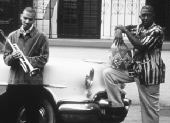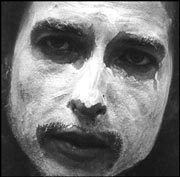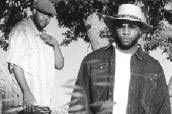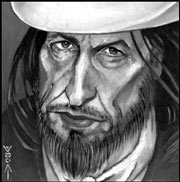LOS HOMBRES CALIENTES
Dimitriou’s Jazz Alley, 441-9729, $17.50 adv. / $19.50 8 p.m. Mon., June 24
MINUTES AFTER arriving in Haiti with his band, percussionist Bill Summers asked the hotel reception desk about the dos and don’ts of the area. They gave him the don’ts first, pointing out sections of town on the map: Don’t go here, or here, or here, they warned him, especially after dark.
“So those were the first places we went,” reports Summers. “And we stayed in there for two days.”
When the band emerged, they’d come away with hours of music preserved on their portable recording equipment. Once again, Los Hombres Calientes had hit town utterly without studio prospects and come out victorious.
To hear Summers tell it, Los Hombres Calientes are less a band than a calling. The band’s Grammy-nominated Volume 3: New Congo Square is a m鬡nge of Afro-Caribbean idioms that, like the Hombres’ previous records, strives to represent precisely the African-influenced music of several countries and, thus, to trace the artistic threads between Africa and the rest of the world.
“What we’re doing,” Summers explains animatedly, “is really an educational project. Each album is a volume. We’ve released Volume 3, Volume 4 is currently in process, and there will be a Volume 20.”
To create Volume 3, Summers and fellow bandleader Irvin Mayfield took the New Orleans-based Hombres on a research-and-recording tour through five Caribbean countries.
“But what you have to understand is many of us consider New Orleans the northernmost Caribbean country. If you look at the Caribbean—at Trinidad, Tobago, Haiti, Jamaica, Cuba—you see that each island has developed its own type of music, dances, foods—a whole culture. New Orleans is the same way. Its African population was and is comprised of people who brought their own cultures intact to New Orleans—which is, itself, an island.”
The title New Congo Square is, in fact, an overt reference to that cultural mixture. Congo Square was a small piece of land in early colonial Louisiana that was set aside for social use by slaves. On weekends, performers would gather there to present the traditional music and dances and to speak the native languages of their home cultures. As a result, says Summers, the preservation of traditional performance and rituals gained an especially strong foothold in the Crescent City.
“It depended on who was in power at the time, of course, but you had this fear amongst whites about blacks rising up. The slaves far outnumbered the slave owners. So you had to give the slaves some accommodations.”
Similarly, Volume 4 of the Hombres’ recordings, currently in the works, will reflect the band’s recent excursions into West Indies voodoo—but not, Summers stresses derisively, “Hollywood voodoo.”
“When we release Voodoo Dance, we’re going to try to DVD the record. We have 11 hours of film and five hours of recorded music. We’re going to tell a saga, and between songs we’ll have a kind of folkloric musical segue. You’ll hear a full song and then the root that it came from—first the hybrid, and then some real voodoo shit. See, we went to the ceremony, we recorded the ceremony in progress. It’s something that’s never been done. It’s like the Berlin Wall: We’re going to knock [down] this wall of hatred and ignorance and prejudice and racism, artistically speaking.”
Through their music, Los Hombres Calientes—who have their origins in the Louisiana-based Summers Multi-Ethnic Institute of Arts, administrated by Bill and his wife, Yvette—endeavor to educate the younger generation of black musicians and artists, to provide a history of accomplishment they’ve previously been denied.
“In each of the countries we visit, we record and perform the hybrid music that’s developed there, but the key is always Mother Africa. There’s not a single instrument on the planet Earth that did not develop in Africa, including Western European instruments.
“That’s why, when you come to see our show, it’s like going to Mass,” he offers, revving up. “It’s like going to Pentecostal church. It’s like going to a voodoo ceremony. It’s like going to the mosque. It’s like going to synagogue. We’re there to party and have fun, but we’re looking to change the complexion of the planet for the betterment of the universe.
“So we’re committed to creating an anthology,” he says again. “Africa’s contributions to the world’s music and art have never been properly documented, so we’re out to set the record straight, but we’re also trying to bring the planet together. We’re trying to draw a common thread through every culture, to prove that through art and music, we can live in peace and harmony.”








